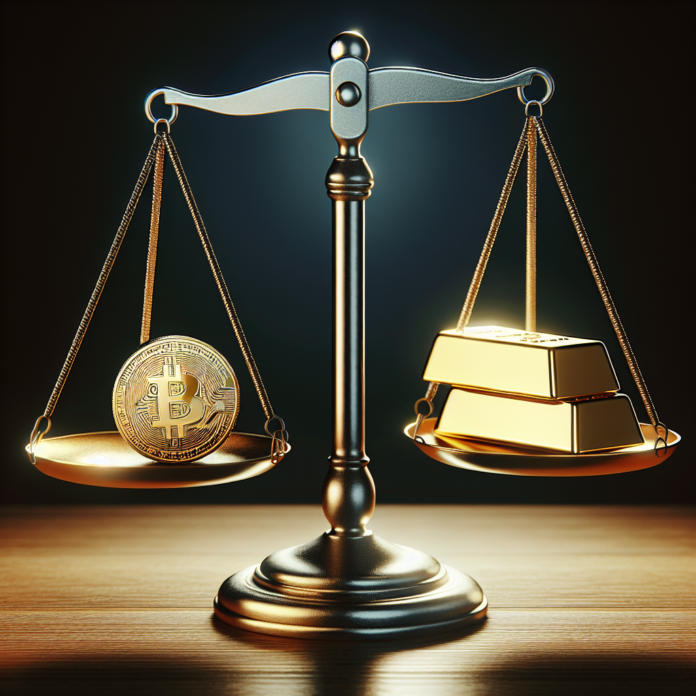The metaphor of Bitcoin as ‘digital gold’ has been a topic of intense debate within the cryptocurrency community and beyond. As Bitcoin continues to capture the world’s attention, it prompts us to consider its potential as a store of value and its comparability to gold, a precious metal that has stood the test of time as a universal symbol of wealth. This analysis aims to dissect the attributes of Bitcoin and gold, highlighting their differences and similarities to understand whether Bitcoin can truly be considered the modern era’s digital gold.
Bitcoin’s Attributes as a Store of Value
Bitcoin’s rise to prominence is noteworthy due to its finite supply, security through blockchain technology, and decentralization. This scarcity mirrors the supply constraints of gold and bolsters Bitcoin’s proposition as a store of value. It’s often touted for its ease of transfer and divisibility, allowing users to send fractions of a Bitcoin across the globe instantly, something that’s not as easily achievable with physical gold.
- Blockchain.com: Explore live Bitcoin transactions and the technology behind them.
Volatility: The Double-Edged Sword
While Bitcoin’s potential is widely lauded, its volatility poses significant risks for investors looking for stable stores of value. Unlike gold, which has a relatively stable history, Bitcoin has experienced dramatic price swings, which can be an attractive characteristic for speculators but a concern for those seeking a haven.
Gold’s Permanence in the Face of Digital Advancements
Gold has a history of several thousand years as a store of value and a medium of exchange. It’s tangible, universally accepted, and historically has maintained its buying power. Gold’s physical nature also means it’s not subject to the same kind of digital risks, such as hacking, that a cryptocurrency faces.
- SPDR Gold Shares (GLD): Consider the traditional gold market through one of the largest gold ETFs.
Institutional Acceptance and Accessibility
Bitcoin’s growing acceptance among institutional investors suggests a burgeoning acknowledgment of its value proposition. Tesla’s acquisition of $1.5 billion in Bitcoin and the advent of Bitcoin futures trading on the Chicago Mercantile Exchange (CME) have added to its legitimacy as an investment vehicle.
- CME Group: Check out how institutional investors are engaging with Bitcoin in the futures market.
Regulatory and Security Considerations
Bitcoin operates in a complex and evolving regulatory environment. The degree to which governments recognize Bitcoin as a legitimate asset class can significantly affect its role as a store of value. Additionally, gold does not require complex digital infrastructure for its safekeeping, whereas Bitcoin requires secure digital wallets and a robust understanding of cybersecurity to mitigate the risks of theft.
The Verdict on Bitcoin as Digital Gold
Presuming Bitcoin continues on its trajectory of increased adoption, improved security, and technological enhancements, it does have the potential to be seen as a store of value akin to digital gold. However, its relatively short history and volatility suggest that it still has much to prove if it is to match the safe-haven status that gold has earned over millennia.
- Coinbase: Dive into the basics of Bitcoin and why it’s often called digital gold.
In conclusion, while Bitcoin possesses some characteristics that suggest it could be considered digital gold, such as scarcity and fungibility, its status as a reliable store of value will take time to establish thoroughly. For now, gold retains its crown as the definitive store of value, with Bitcoin emerging as a compelling, albeit fledgling, digital counterpart. The future may shine brightly for Bitcoin as advances in security and wider acceptance help it evolve, but whether it will ever glitter quite like gold remains to be seen.




 AGF-B.CO
AGF-B.CO